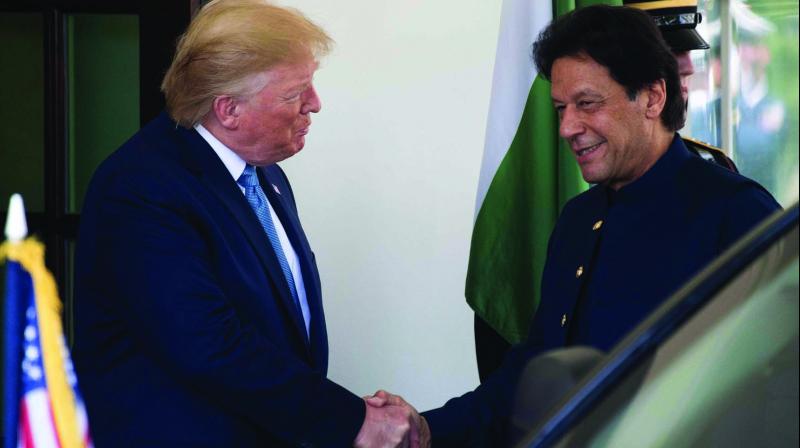India must tell US why Valley strictly bilateral
Delhi has much to lose, and very little to gain from Washington muddying the waters.

Washington’s newfound enthusiasm to step into the South Asian quagmire has the potential to cause long term damage not just to India-US relations but affect India’s standing in its own backyard as the Trump administration goes back to pandering to arch-rival Pakistan.
In offering to mediate, not once but twice, on Kashmir, a dispute that has defied resolution for half a century, US President Donald Trump is being blindsided into believing that he has a reliable comrade in arms in Pakistan, that is under the personable cricketer-turned-politician, Prime Minister Imran Khan; when, to all intents and purposes, it is still the powerful Pakistan military that calls the shots.
For the second time in as many weeks, India’s foreign minister S. Jaishankar’s rebuff — this time directly to US Secretary of State Mike Pompeo, at the Asean regional meet in Bangkok — has fallen on deaf ears. The message that India does not take kindly to meddling in what it considers its internal affairs must reach the current resident of the White House. It must spell out that there is no room for third party involvement.
Washington must be firmly disabused of the line — and the lie — that Pakistan has long peddled — that it is the unresolved Kashmir dispute that has a direct bearing on the instability in Afghanistan, where thousands of US troops are still deployed. And that if the Kashmir border were quiet, Afghanistan would require no policing.
India’s crackdown on infiltrators in Jammu and Kashmir is to limit the Pakistan military’s calculated and continuing destabilisation of the state, through cash and guns.
Delhi has much to lose, and very little to gain from Washington muddying the waters. While previous dispensations including the Vajpayee government had sought behind-the-scenes US arm-twisting to get Pakistan to withdraw when its Army regulars occupied the heights in Kargil under the guise of “freedom fighters”, and perhaps, staying India’s hand on retaliation after Pulwama, no American leader has crossed the line since, respecting Indian sensibilities.
But in a sign that it is re-election that drives Donald Trump, this American president has focused on sending out the message to his domestic audience that his top priority is to bring US troops home. Unfortunately for India, which has invested in improving the lives of war-weary Afghans, it has seen itself reduced to irrelevance in the Afghanistan-Pakistan theatre. Conversely, for Pakistan, which has kept the Taliban as a weapon in reserve, a proxy that it unleashes at will, it has sat back and watched with quiet satisfaction as its star rises.
Washington may need India to counter China in the Indo-Pacific, but it is here on our borders that Mr Trump’s promised resumption of the $125 m. in technical support for Pakistan F-16s, signals an immediate and debilitating change. Indian diffidence may have cost it cheap Iranian oil, its foothold in Chabahar and perhaps even its $4b investment in Afghanistan. Can it allow the US to dictate terms on Kashmir?
